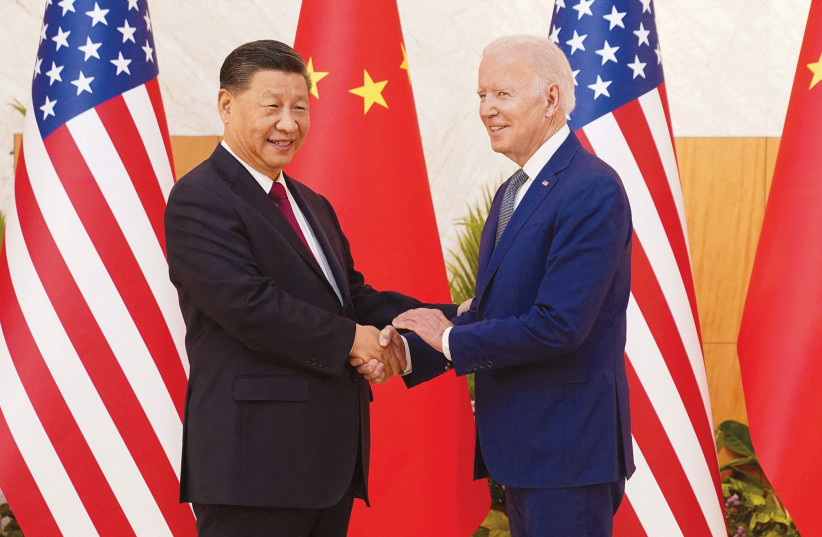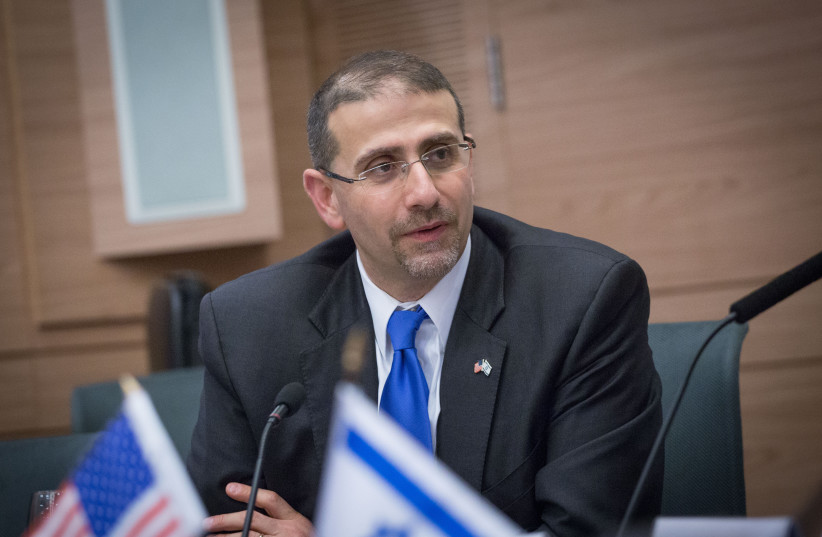WASHINGTON – Secretary of State Antony Blinken’s reported visit to Israel later this month raises a big question.
Since US President Joe Biden took office, he has repeatedly signaled that the Middle East, including Israel, is not a top priority.
Following the withdrawal from Afghanistan in 2021 and the failed attempts to revive the 2015 nuclear agreement with Iran, along with improving ties between the US and Saudi Arabia, the administration directed most of its attention and resources toward the Russia-Ukraine war. China, and its complicated relationship with Washington, came second.
Now, the administration is sending two of its most senior officials – Blinken and National Security Advisor Jake Sullivan – to Jerusalem in a matter of weeks, only a short time after Israel’s new government took office.
Sullivan shared some of his travel plans on Monday, saying he would be discussing threats posed by Iran when he makes his trip to Israel to meet the new government.

A change in policy?
Sullivan, speaking to reporters during a trip by Biden to Mexico, said the US government has made clear that a nuclear agreement with Iran is not a priority at the moment and that it continues to believe that diplomacy is the right way to ensure that the country does not obtain a nuclear weapon.
He said the Biden administration would have an opportunity to engage with the new Israeli government about the issue.
“We will work through any differences we have on tactics,” said Sullivan.
Since the new government was sworn in some 10 days ago, the Biden administration issued several statements on its “continued support for the two-state solution.”
“We will oppose policies and practices that undermine the viability of the two-state solution or that cut hard against the historic status quo in Jerusalem – and I will be clear and direct on those points,” Sullivan told NPR in an interview Friday.
Blinken, for his part, underscored in his recent conversation with the Jordanian foreign minister the “importance of preserving the historic status quo at Jerusalem’s Haram al-Sharif/Temple Mount and expressed appreciation for the Hashemite Kingdom of Jordan’s special role as custodian of Muslim holy sites in Jerusalem.”
And indeed, the two senior officials have a lot to discuss with the new government: Starting with the administration’s top priority – Ukraine, and the US desire that its allies would be more vocal against Russia; Iran and the prospects of renewing the JCPOA; and recent developments in the Israeli-Palestinian conflict, including Palestinian pleas to The Hague, Israel’s decision to withhold tax revenues, freezing building plans in Area C and penalizing Palestinian officials.
The goal: maximize coordination

Does the double visit, combined with a series of public statements on the administration’s commitment to the two-state solution, and the recent developments on the ground, suggest that the administration is re-prioritizing the region? According to Dan Shapiro, former ambassador to Israel and a distinguished fellow at the Atlantic Council, the short answer is no.
These visits, he said, are important because they “give US officials a chance to set some limits that they hope will head off major disagreements and crises in the Israeli-Palestinian arena that could force the United States to spend much more senior-level time and attention than they have had to until now.
“A series of visits by high-level officials is a sign of intense conversations to coordinate between US and Israeli officials; it’s healthy,” he said. “It is an attempt to maximize coordination and minimize, although not eliminate, disagreement.”
He went on to say that “it doesn’t mean the Biden administration has changed its approach on where its highest priorities are – which is not in the Middle East,” said Shapiro. “There may be some opportunities to develop – like the prospect of Saudi-Israel normalization – and there is important work to be done to coordinate efforts to prevent an Iranian nuclear weapon,” he concluded.
Reuters contributed to this report.
